From July 14th to 15th, Shandong Institute of Hydrogen Energy Technology successfully held the 6th Green Energy Entrepreneur Development Program with the theme of "Offshore Energy Island". More than 20 senior managers and senior technicians from over 10 institutions and enterprises, including CIMC Raffles, PowerChina, Three Gorges Hydropower, Sichuan Research Institute of Shanghai Jiao Tong University, Jiangsu Guoxin Research Institute, CIMC Electrical, Zhejiang Mingshen Hydrogen Energy, Wuhan Ganoderma lucidum Environmental Resources Technology, Guangdong Liansu Technology, Hydrogen Dynamic New Energy, Yantai Dongde Hydrogen Energy, Foshan Xianlong Technology Engineering, Yunnan Shunhe Logistics, and Gaorong Investment, signed up for this workshop and obtained the completion certificates.
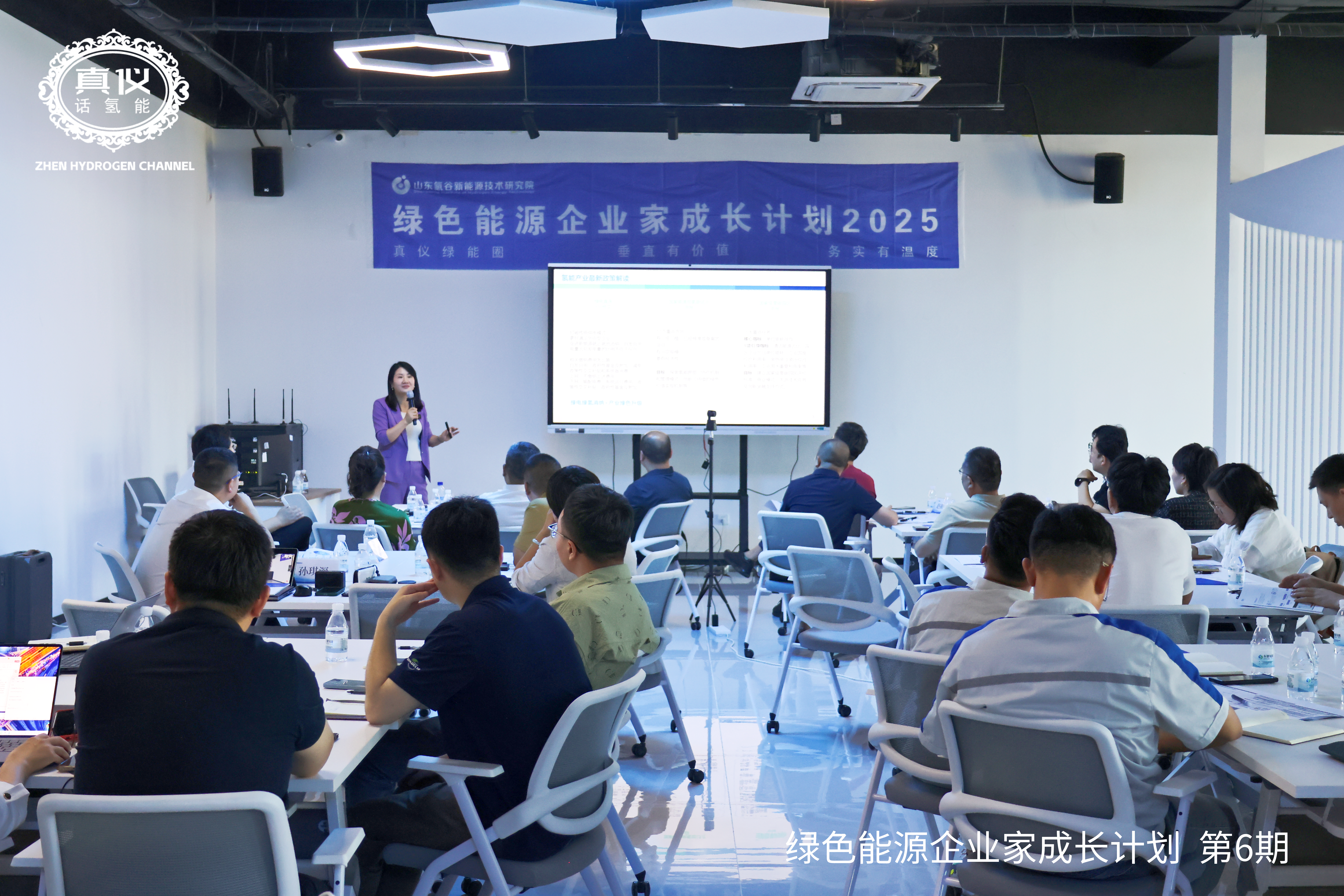
This phase of the Entrepreneur Development Program included industry training and on-site research in the afternoon of July 14 and throughout July 15. Two senior experts from Shandong Hydrogen Valley New Energy Technology Research Institute and Yantai Dongde Industry were invited to give lectures.
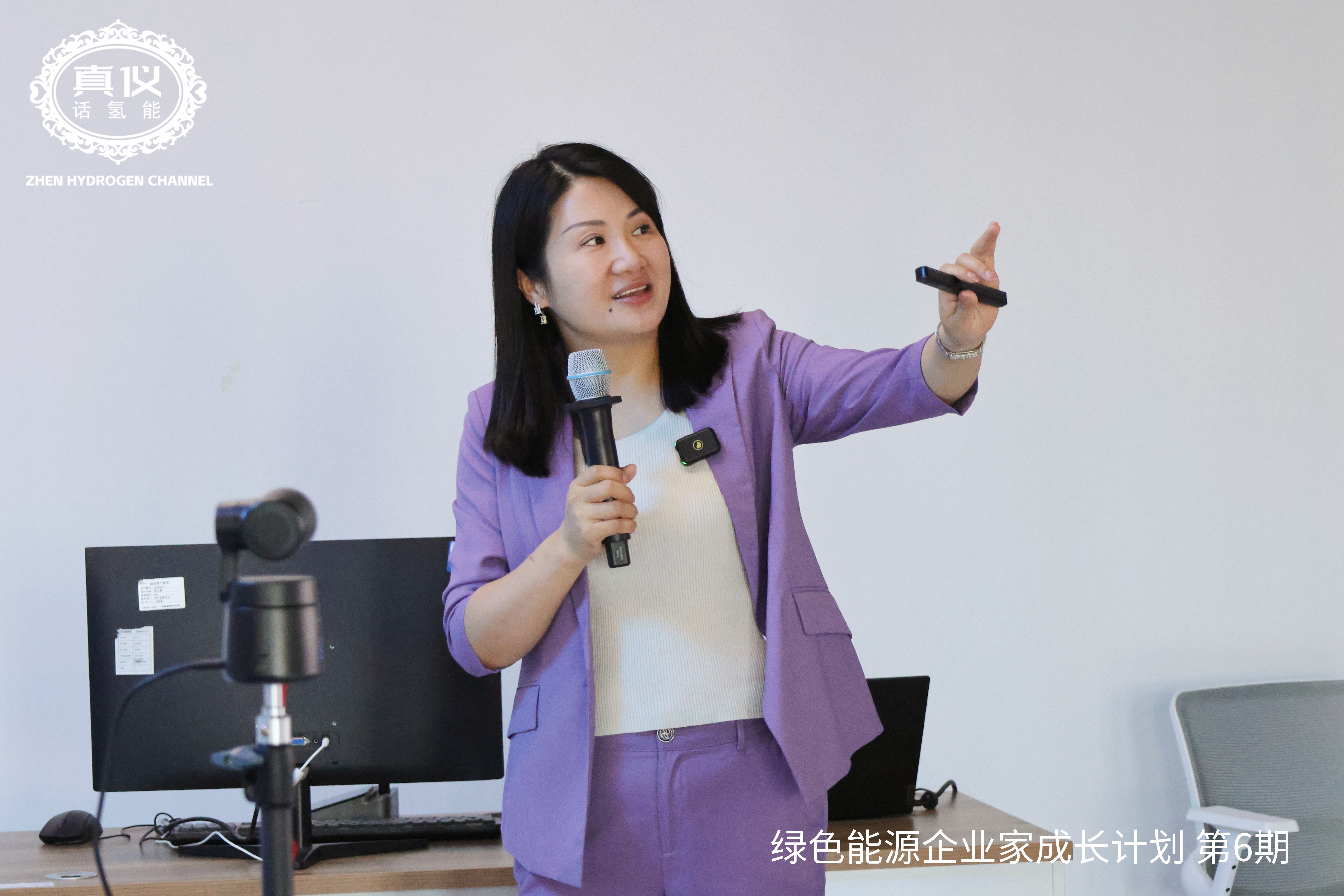
Zhang Zhen, Executive Dean of the Low-Carbon Integration Development Research Institute of China EV100 and Dean of Shandong Hydrogen Valley New Energy Technology Research Institute, delivered a course entitled "Analysis on the Direction of National Hydrogen Energy Pilot Projects and Commercial Application Scenarios". He systematically interpreted the latest policies in the green energy industry, including Document No. 650 of the National Energy Administration, as well as the applications for hydrogen energy pilot projects and national-level zero-carbon park projects initiated by the National Energy Administration.
He conducted an in-depth analysis of the core requirements for applying for the National Energy Administration's hydrogen energy pilot projects, and elaborated on the 11 specific directions under the four key links of hydrogen energy pilot projects (production, storage and transportation, application, and common support). These directions include large-scale/off-grid hydrogen production, pipeline/multiple storage and transportation, industrial replacement, hydrogen/ammonia-blended power generation, hydrogen energy storage, and demonstration platforms. Combined with typical domestic and foreign cases such as Kuqa green hydrogen, Tieling off-grid hydrogen production, and Pengfei hydrogen energy ecosystem, he carried out an analysis of technical feasibility and models.
In the part of commercial application scenarios, he focused on analyzing the market potential, economy, and technical challenges in key fields such as cold chain logistics vehicles, hydrogen-powered two-wheelers, natural gas blended with hydrogen, and pure hydrogen gas turbines. Finally, Dean Zhang Zhen also put forward suggestions on the segmented fields that small and medium-sized enterprises can focus on laying out in response to industrial opportunities.
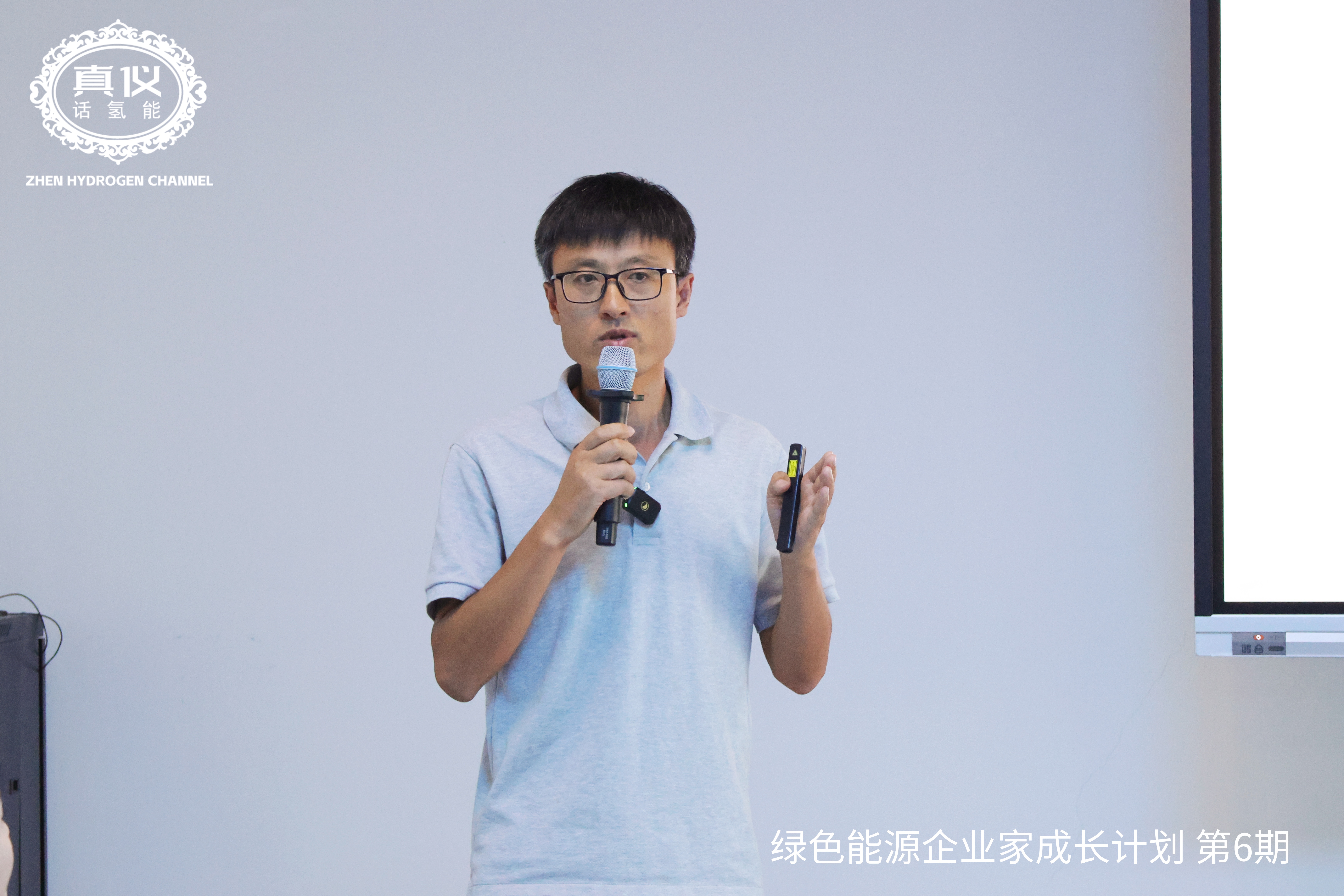
Wang Kun, Project Manager of Natural Gas-Hydrogen Blending Skid at Dongde Industry, delivered a training course entitled "Technology and Application of Natural Gas-Hydrogen Blending Skid". Centering on the core technologies and development prospects of natural gas-hydrogen blending skids, the course covered various aspects such as product principles, core advantages, application scenarios, and economic benefits. He elaborated on how the blending skid achieves precise mixing of hydrogen and natural gas through three key technologies: flow follow-up, Venturi injection, and high-pressure proportional mixing. He systematically expounded its application value in fields like urban gas, long-distance pipelines, industrial boilers, and transportation, and conducted an in-depth analysis of the equipment's key role in emission reduction, energy consumption reduction, energy efficiency improvement, and the promotion of the hydrogen energy industry. He emphasized its technical support and market potential for achieving the "dual carbon" goals.
During the event, entrepreneurs were organized to conduct on-site research and visits to Yantai Dongde Industry Co., Ltd., Kaigeruisen Energy Technology Co., Ltd., and CIMC Ocean Engineering Research Institute.
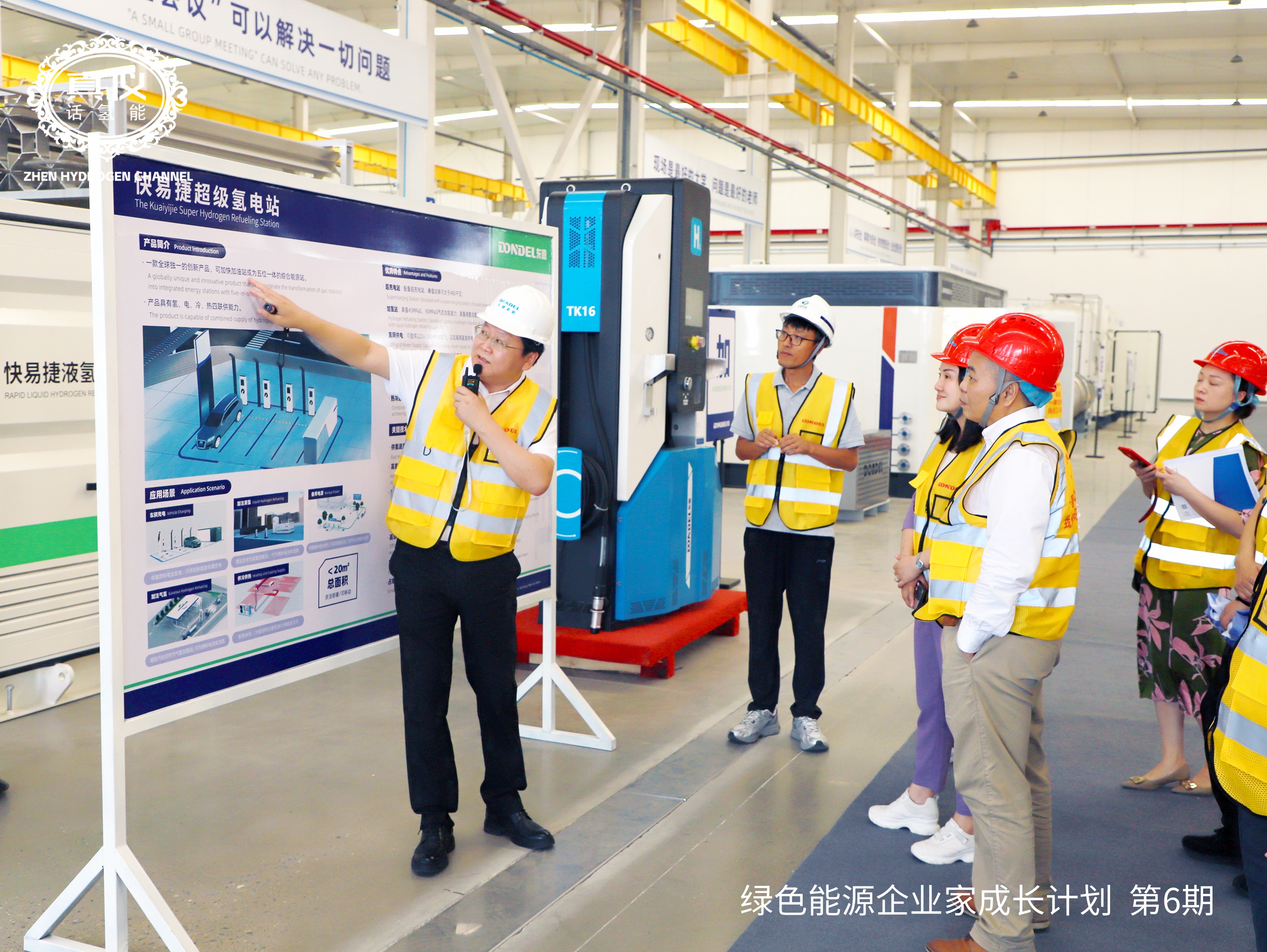
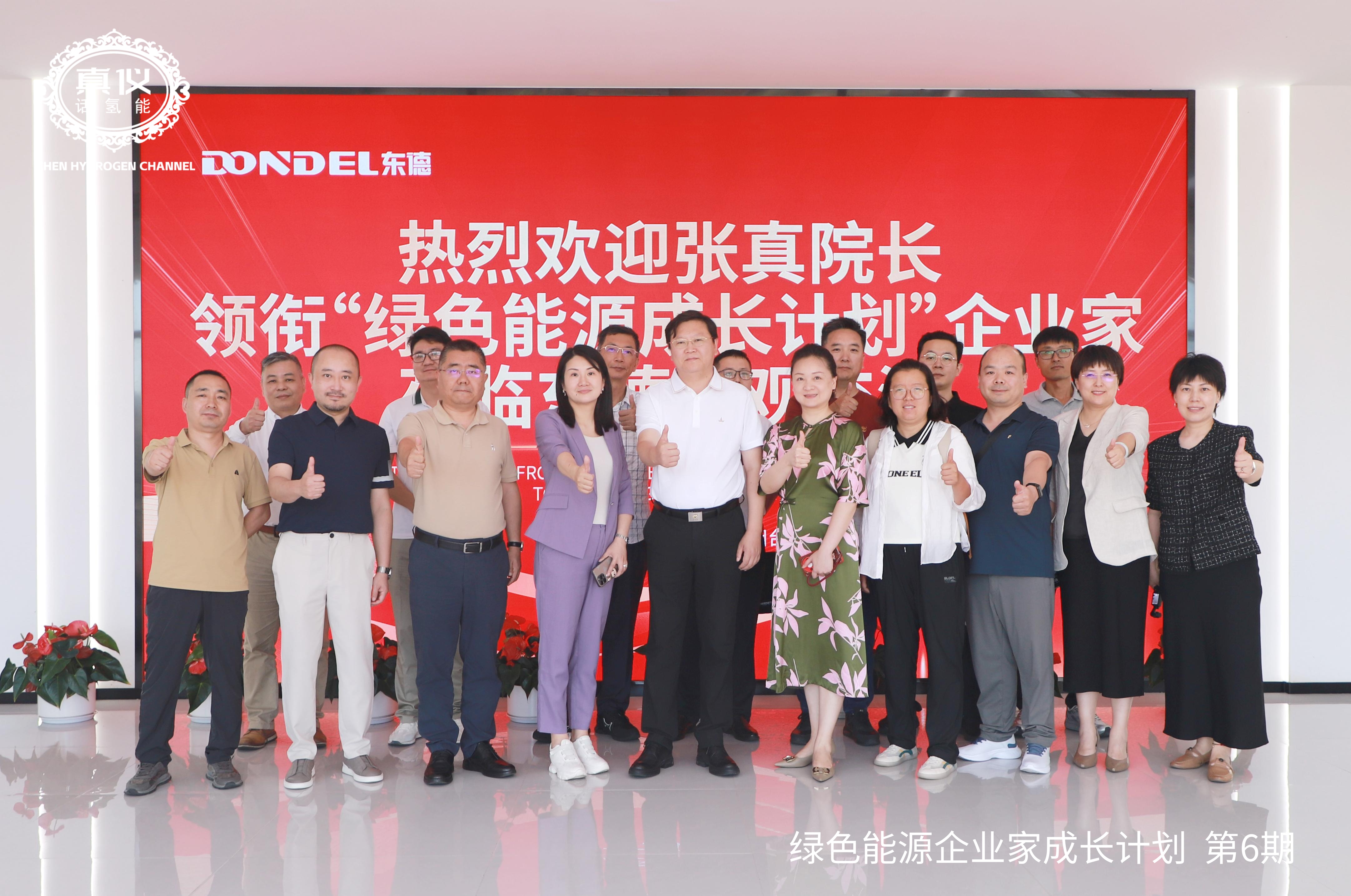
Visiting Yantai Dongde Industry Co., Ltd.
The first stop was Yantai Dongde Industry Co., Ltd. The company conducts technical research on hydrogen fuel cell air compressors and hydrogen circulation pumps in terms of safety, reliability, performance, and control systems. Its products are widely used in the hydrogen energy industry and supporting facilities, covering fields such as hydrogen production, hydrogen refueling, transportation, chemical industry, electric power, hydrogen metallurgy, liquid hydrogen plants, hydrogen energy storage, and liquid hydrogen refueling. Hydrogen fuel cell vehicles include logistics vehicles, cold chain vehicles, buses, forklifts, trucks, commercial vehicles, etc. Currently, Dongde Industry is in a leading position in China in terms of hydrogen fuel cell BOP components, core hydrogen energy equipment technologies and products.
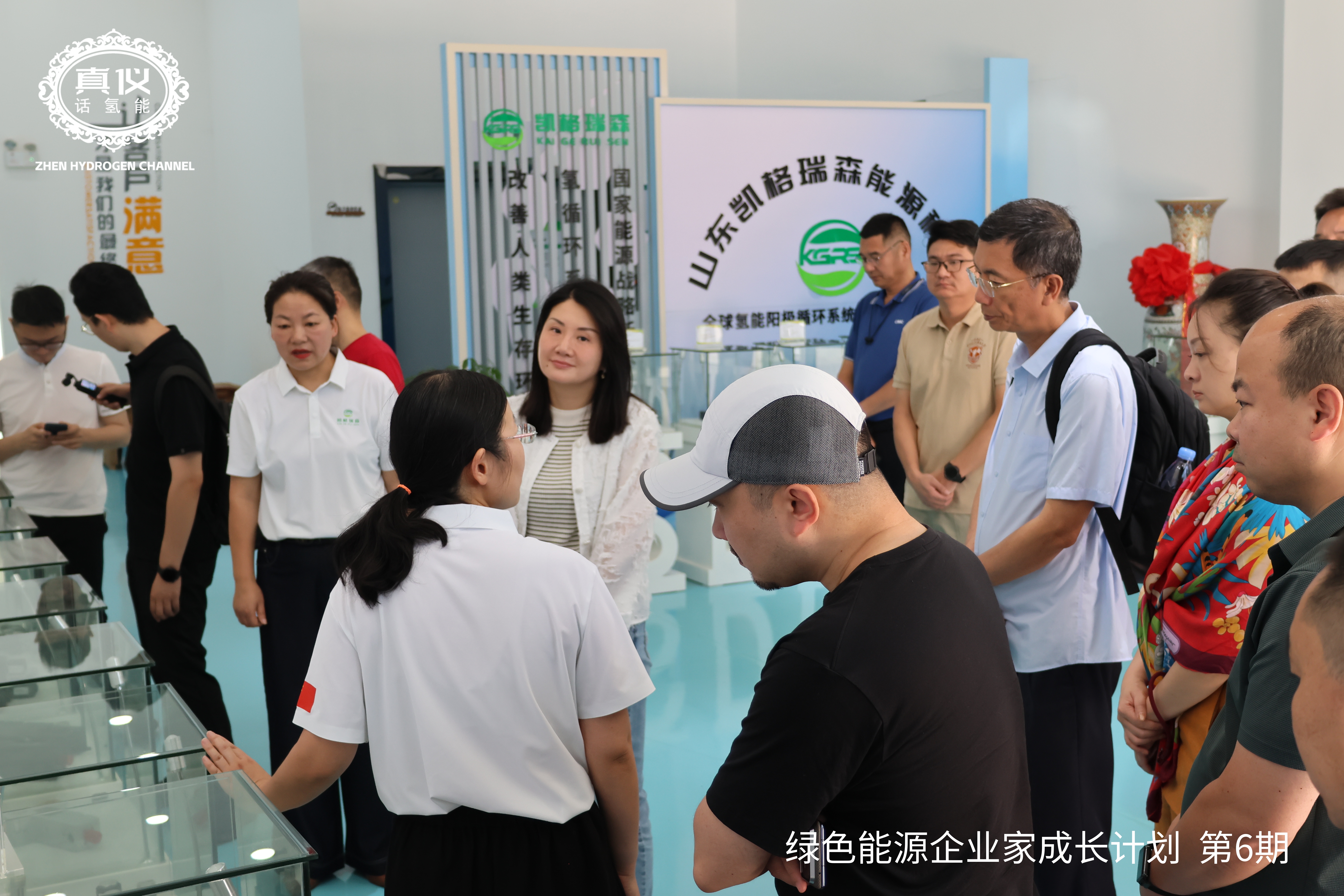

Visiting Shandong Kaigeruisen Energy Technology Co., Ltd.
The second stop was Shandong Kaigeruisen Energy Technology Co., Ltd. The company is committed to the R&D, production and sales of core hydrogen energy equipment, aiming to become an international hydrogen circulation system supplier and promote the localization process of key components of fuel cell systems. Kaigeruisen has established industry-university-research cooperation with domestic institutions of higher learning such as Shandong University, Tongji University, Shanghai Jiao Tong University, and China University of Petroleum. At present, it has developed a hydrogen circulation system with independent intellectual property rights, filling the domestic technical gap, and has passed the third-party CNAS certification at one time.
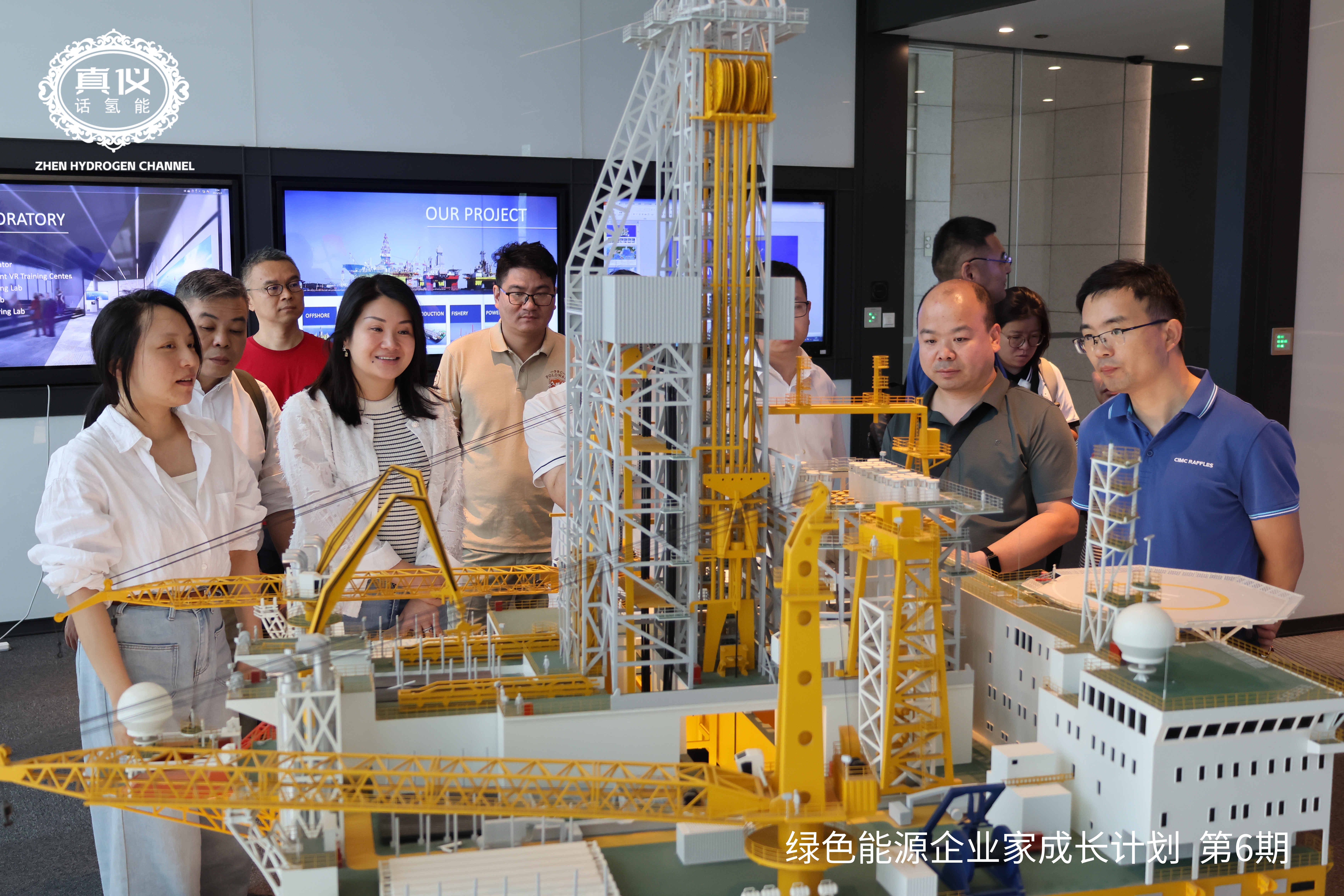
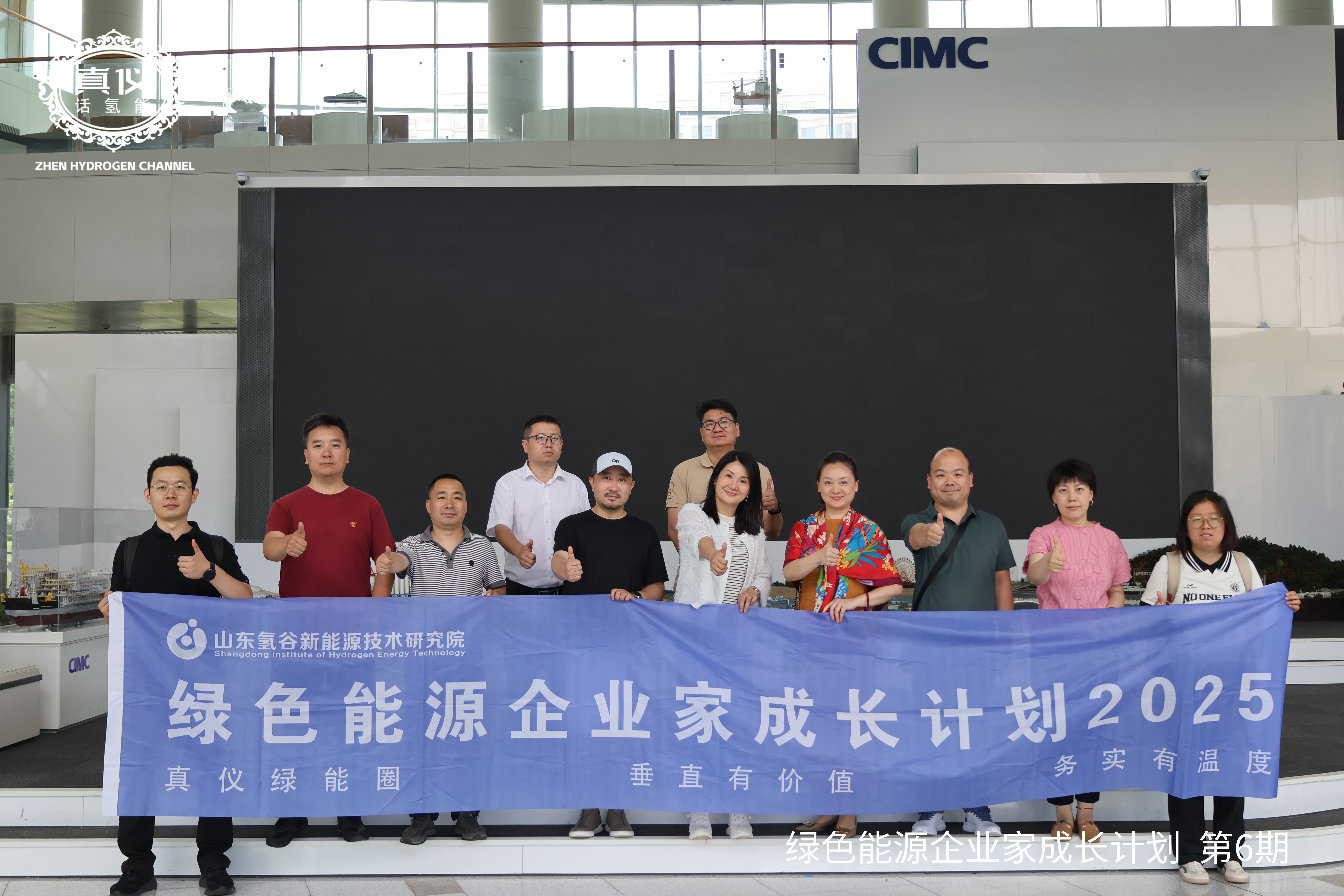
Visiting CIMC Ocean Engineering Research Institute
The third stop was CIMC Ocean Engineering Research Institute, which houses the Offshore Oil Drilling Platform R&D (Experiment) Center accredited by the National Energy Administration and a national-level innovation platform in the marine technology field. It boasts robust R&D and design capabilities for high-end marine engineering equipment, with its product range covering semi-submersible platforms, jack-up platforms, special marine engineering vessels, floating nuclear power equipment, wave energy equipment, and more.

Technicians from CIMC Ocean Engineering Research Institute gave a detailed introduction to China's first marine hydrogen-ammonia-methanol integration project. Completed and put into the commissioning phase on March 27, 2025 in the waters of Yantai, Shandong, this project is China's first marine new energy demonstration project covering the entire industrial chain of hydrogen production, storage, transportation and application. The offshore energy island can utilize green electricity generated by wind and photovoltaic resources around the sea to produce new energy sources such as hydrogen, methanol and ammonia on the island. Ocean-going vessels can rely on the offshore energy island to refuel with green fuels. This brand-new model will open a new chapter in the development and utilization of offshore clean energy in China.
After two days of industry training and on-site research, the 6th phase of the Green Energy Entrepreneur Development Program concluded successfully, with all entrepreneurs completing their studies and obtaining relevant certificates of completion.
Entrepreneurs stated that through systematic theoretical courses and immersive practical research, this training program has enabled them to comprehensively build a knowledge framework of green energy technologies and equipment industries, effectively improving their professional cognition and broadening their industry horizons. The special lectures and case analyses by senior experts not only solved the policy and technical problems perplexing the industry, but also provided practical solutions for enterprises' green transformation. What is particularly worthy of recognition is that the program has successfully built a cross-industry and cross-regional industry-research exchange platform, promoting in-depth exchanges, resource sharing and business docking among participating entrepreneurs in the fields of new energy, equipment manufacturing, chemical industry, transportation, etc., to jointly explore the path of industrial chain collaborative innovation around the dual-carbon goals. This "Green Energy Entrepreneur Development Program" has not only reserved professional management talents for the application of enterprise green technologies, but also injected strong development momentum into the construction of the industry ecosystem.





